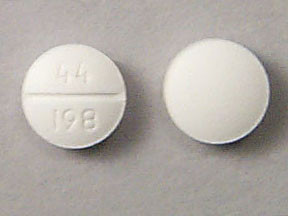DIMENHYDRINATE - ORAL
PHONETIC PRONUNCIATION: (DYE-men-HYE-dri-nate)
COMMON BRAND NAME(S): Dramamine
GENERIC NAME(S): dimenhydrinate
Uses
USES: Dimenhydrinate is an antihistamine used to prevent and treat nausea, vomiting, and dizziness caused by motion sickness. Do not use this medication in children younger than two years unless directed by the doctor.
How to use DIMENHYDRINATE - ORAL
HOW TO USE: Follow all directions on the product package. If your doctor has prescribed this medication, take it as directed. If you are uncertain about any of the information, consult your doctor or pharmacist. Take this medication by mouth with or without food. Measure liquid forms of this medication using a special measuring device/spoon. Do not use a household spoon because you may not get the correct dose. The chewable tablets should be chewed thoroughly before being swallowed. The dosage is based on your age, medical condition, and response to treatment. Do not increase your dose or take this medication more often than directed. To prevent motion sickness, take the first dose 30 to 60 minutes before starting activity such as travel. Tell your doctor if your condition does not improve or if it worsens.
Side Effects
Precautions
Interactions
Overdose
Images
Reviews
Faq for DIMENHYDRINATE - ORAL
Dimenhydrinate is primarily used to prevent and treat motion sickness and vomiting.
Dimenhydrinate works by blocking certain chemicals in the brain that are responsible for triggering nausea, vomiting, and dizziness.
Common side effects of dimenhydrinate include drowsiness, dry mouth, blurred vision, constipation, and urinary retention.
Dimenhydrinate can be used in children for motion sickness, but it is recommended to consult with a pediatrician for proper dosage based on age and weight.
Dimenhydrinate should be used during pregnancy only if the potential benefits outweigh the risks, and it is advised to consult with a healthcare provider before using it.
Dimenhydrinate should be taken with a full glass of water, and it can be taken with or without food. It is important to follow the dosage instructions provided by the doctor or the medication label.
Dimenhydrinate is not known to be addictive, but it may cause drowsiness and impair cognitive function, so it should be used with caution.
Dimenhydrinate may interact with certain medications, such as sedatives, tranquilizers, and other antihistamines. It is important to inform your healthcare provider about all the medications you are currently taking to avoid any potential drug interactions.
If you miss a dose, take it as soon as you remember. However, if it is close to the time for the next dose, skip the missed dose and continue with your regular dosing schedule.
Disclaimer
IMPORTANT: HOW TO USE THIS INFORMATION: This is a summary and does NOT have all possible information about this product. This information does not assure that this product is safe, effective, or appropriate for you. This information is not individual medical advice and does not substitute for the advice of your health care professional. Always ask your health care professional for complete information about this product and your specific health needs.


No Reviews Yet